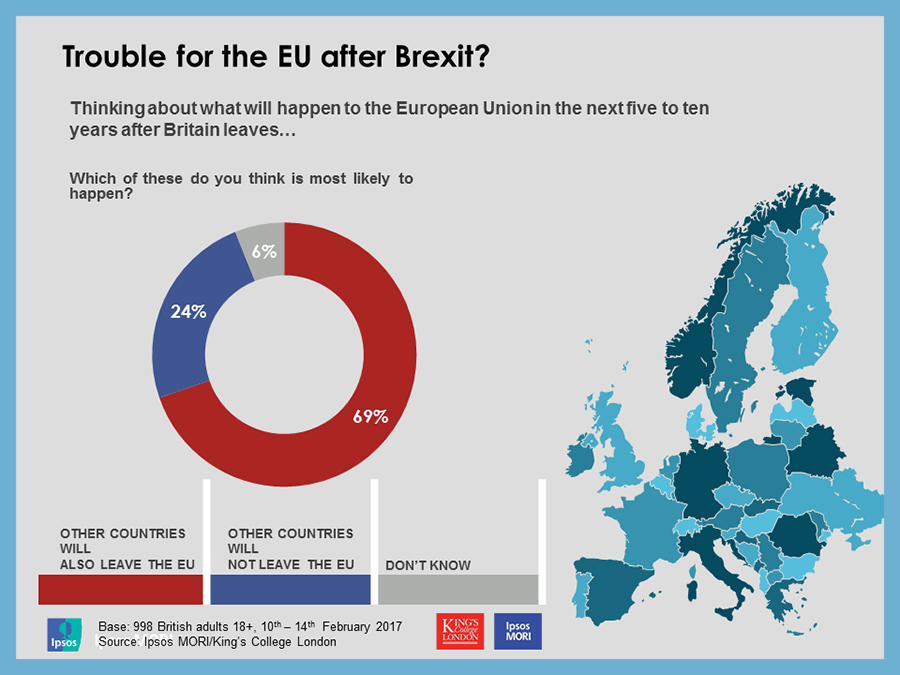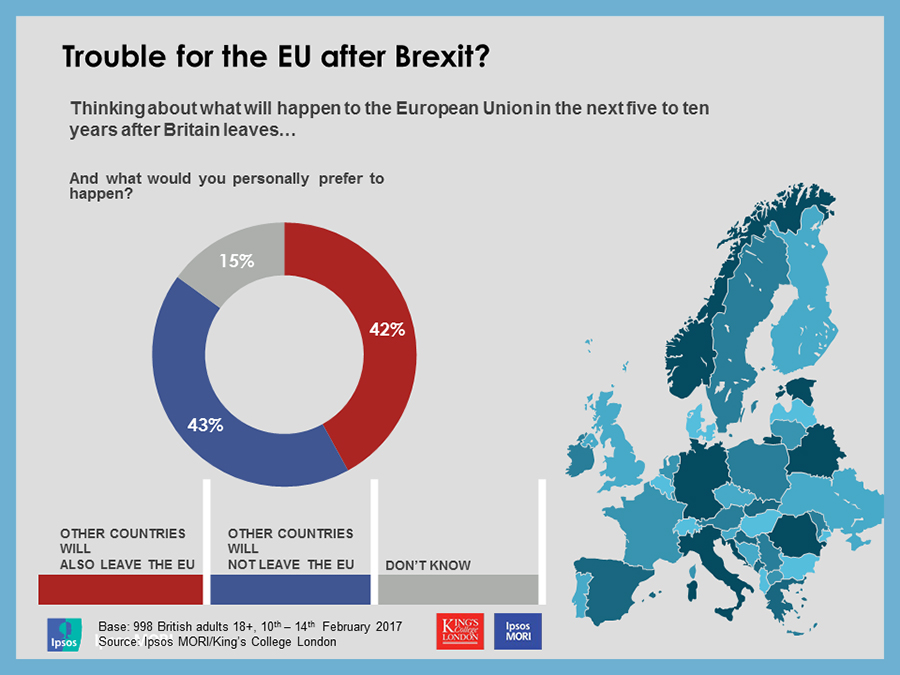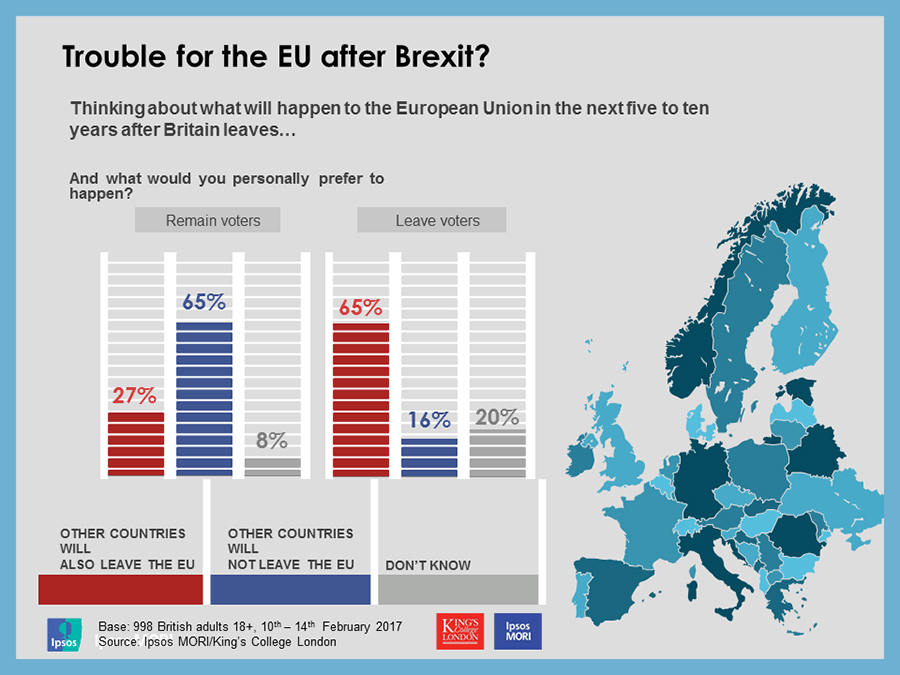Most Brexit voters want more members to leave the EU
The telephone survey of 998 British adults carried out last month, and published as the UK begins the process of leaving the EU by triggering Article 50, found that most people in Britain think that the EU will lose more members once Britain has gone. But while two-thirds of “Leave” voters say they would personally prefer this to happen, two-thirds of “Remain” voters would prefer that it doesn’t.
Seven Britons in ten (70%) said they thought it was most likely that other countries will also leave the EU in the five to ten years after Britain leaves; only a quarter (24%) thought it more likely that more countries will not leave. When asked what they would personally prefer to happen, the public are split: 42% want other countries to leave too, 43% would prefer no other countries to leave. But views on this second question dramatically differ according to views on Brexit: 65% of those who say they voted for Britain for Leave the EU hope other countries will also leave, while 65% of those who voted for Britain to Remain in the EU hope all the other countries will remain.



Professor Anand Menon of King's College London, Director of UK in a Changing Europe, said:
“The poll uncovered some fascinating differences between public and political opinion. While the Prime Minister has made it clear she wants the EU to flourish without the UK, a large proportion of Leave voters believe, and indeed hope, that other member states will leave the Union in the wake of Brexit.”
Technical Note
- Ipsos interviewed a representative sample of 998 GB adults by telephone on 10-14 February 2017. Data were weighted to match the profile of the population.
- The survey was conducted for the Polling Club at King’s College London. The Polling Club, run by Professor Roger Mortimore, allows students to increase their knowledge and understanding of survey research and public opinion by helping to design and analyse the results from a poll carried out by Ipsos. For further details about the Polling Club, contact Professor Mortimore.



